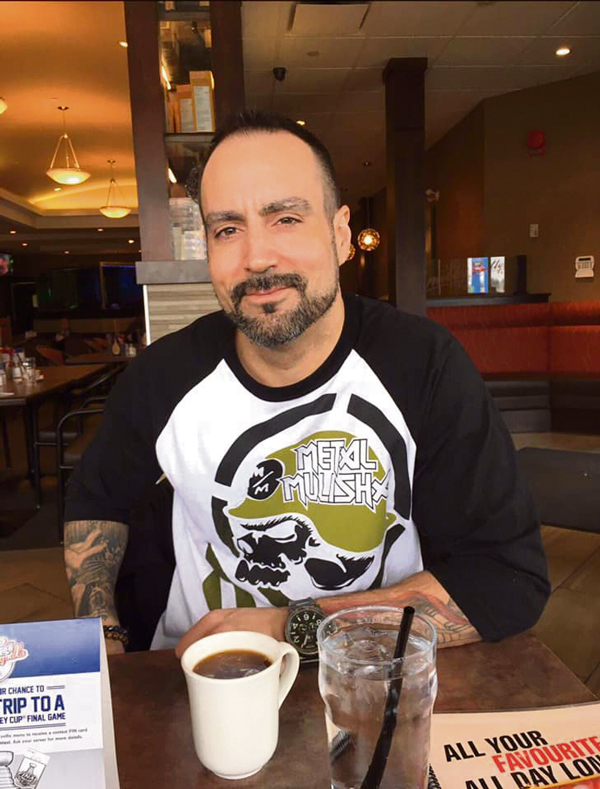
Lauren Laithwaite’s son Christopher Van Camp, 37, was on parole when he took cocaine laced with fentanyl and overdosed on May 24, 2017.
Less than a month later, on June 7, he was lying on the bottom bunk of his prison cell, dead.
Thursday, Van Camp’s cellmate, Tyler Vandewater, was found guilty of second-degree murder in Van Camp’s death.
After the overdose, Van Camp was in a coma until May 29, then was arrested and found to have breached the conditions of his release.
Laithwaite wants the federal government to clarify who would be protected by the Good Samaritan Overdose Act, which came into force in 2017. Her lawyer, Tavengwa Runyowa, sent a letter to federal Justice Minister David Lametti and Minister of Public Safety and Emergency Preparedness Bill Blair on March 2 asking for clarification.
Runyowa wrote that the attorney general’s statement of defence in Laithwaite’s lawsuits, filed in Saskatchewan in 2018 and Alberta in 2019 over her son’s death, claims that the legislation doesn’t apply “at least to certain people, including Chris.”
The claims made in the statement of claim and statement of defence have not been proven in court.
“He had a drug addiction and was allowed to continue using those drugs in prison,” Laithwaite said following court Thursday.
She said he was moved from medium to maximum security because of his drug use.
“Then they allowed him to go on parole, with a label of … a high susceptibility to use drugs. They didn’t ask him to go into any kind of rehabilitation,” Laithwaite said.
“Then, they arrest him in the ICU after he’s been on life support for five days. Any of these things warrant my lawsuit. But then they arrested him where the law protected him, which is the Good Samaritan (Act) that says he was exempt from re-arrest.”
Laithwaite said her son was then transported, while weak, back to prison.
“The government broke the law on every point here,” she alleged. “So who’s to blame?” He should have never been arrested in the first place. He was innocent, as innocent as any of you. Just because he committed a crime before didn’t make him guilty of what he was put in that cell for. That’s what we’re fighting against.”
In its statement of defence, the federal government disputes some of Laithwaite’s claims.
They argue that Van Camp was initially released in Winnipeg in 2016 and sent to a residential facility. They say he was dismissed from that facility for a “poor attitude” and “manipulating staff”, and later for introducing and trafficking narcotics into the centre.
He was later placed at Sask. Pen in medium security. He was alleged to have been involved in the introduction and distribution of a large number of drugs at Grande Cache, before being transferred to maximum security “given reliable indications that he had been organizing the introduction and distribution of drugs” throughout the penitentiary.
Van Camp was released again in 2017, the federal government says, provided with the national substance abuse program twice and referred to a community maintenance program to address substance abuse. He was also said to have attended Narcotics and Alcoholics Anonymous.
Runyowa’s letter called the government’s statement of defence a “contradiction” to the legislation’s wording. It states that no one who seeks emergency medical or law enforcement help because they or someone else is overdosing will be charged if the evidence used against them was obtained because they asked for help.
Runyowa wrote that if Van Camp was deemed not to have committed an offence by seeking medical assistance after overdosing, then the minister and attorney general “must be relying on some characteristic that disentitled” Van Camp from the act’s protections. He added that whatever the “undisclosed traits are, they likely disentitle many other people across Canada who may overdose …”
Clarity is needed about whether other Canadians would be exempt in this way from the act’s protections, he wrote.
The letter’s release was timed to coincide with the expected verdict, Runyowa said in an interview.
The statement of defence also argues that some of the claims have to be dismissed because Van Camp is deceased. That doesn’t sit well with Laithwaite.
“What the Attorney General is counting on in their defence is that even if they were wrong, Christopher’s rights died with him that night,” she said.
“What ware they liable for? What is the motivation for them to change anything if people die and they’re not held monetarily responsible for it?”
While Laithwaite’s suit against Correctional Service of Canada, Alberta Health Services, the Attorney General of Canada and the Calgary Police is ongoing, it’s not the only proceeding that will take another look at Van Camp’s death.
Once the criminal proceedings are over, an inquest will be held to determine a cause of death and make recommendations to prevent future incidents.
“None of this would have been possible had there not been a complete breakdown of the system,” Laithwaite said. “I think leadership needs to step up and stop blaming the victim.”
Laithwaite said prison is releasing offenders back into the community addicted to drugs and set up to fail.
“It’s time that leadership starts putting money into rehabilitation and cleaning up the prisons.”
While Vandewater has been found guilty, for Laithwaite, there’s no justice until something changes. She was asked Thursday if the verdict brought her any closure or any sort of comfort.
“No, my son is dead,” she said.
“I am lost. Tyler’s lost. What has the prison system lost? Nothing. I’ll feel some sort of benefit when they come forward, admit to the failings and change it and give these guys a chance.”
— with Saskatoon StarPhoenix files from Thia James

